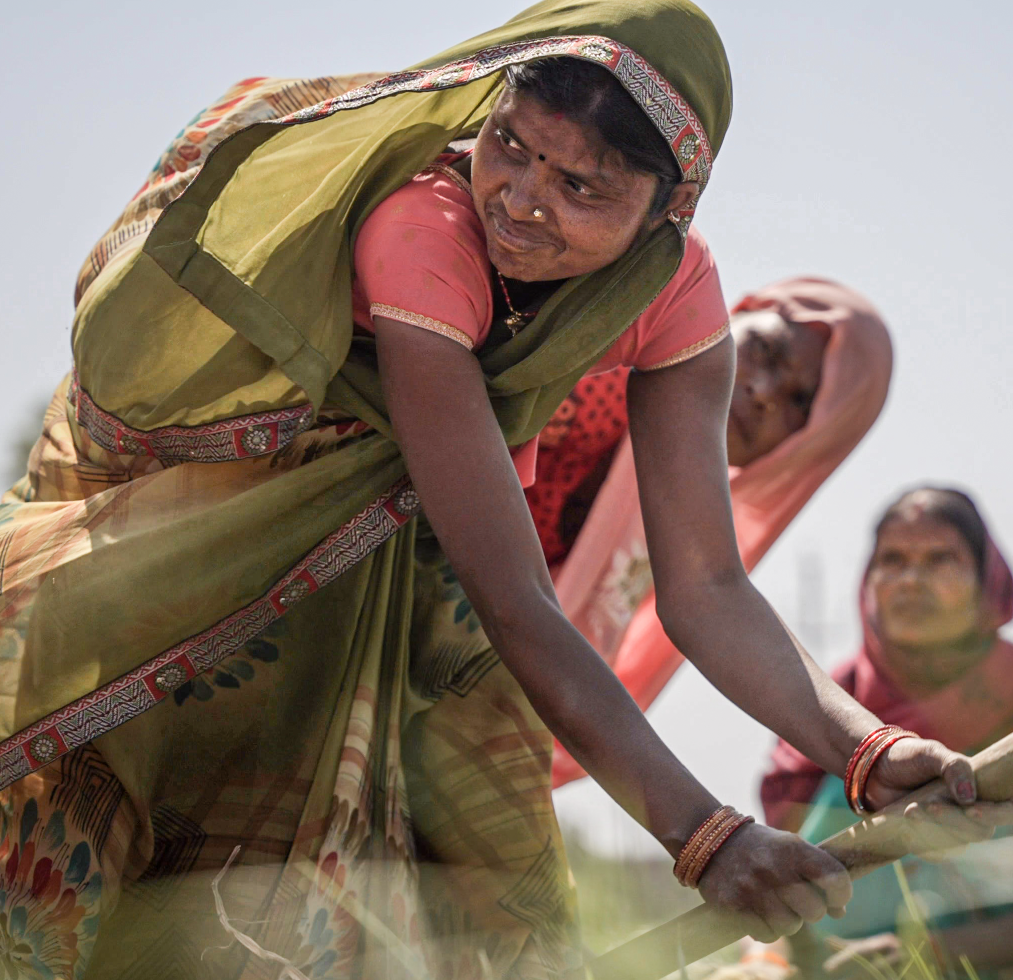×
Home Foreword
Stories Cultivating a Brighter Future: How CIP’s Strategic Vision Transformed People’s Lives Biodiversity story Mobilizing genetic diversity to enrich agroecologies and livelihoods Crop improvement story Developing and delivering superior varieties that meet changing farmer and consumer demands Regenerative improvement story Improving farmers’ productivity and income, while building resilience in agricultural systems for sustainable and equitable growth Urban Food Systems story ADAPTING AGRICULTURAL AND FOOD INNOVATIONS TO IMPROVE URBAN DIETS AND LIVELIHOODS
>


The imperative of improving farmers’ productivity and income while fostering resilience in agricultural systems for sustainable and equitable growth is underscored by the significant negative impacts of traditional farming practices on climate, the environment, and communities. Conventional agriculture, marked by monocultures, chemical use, and uniform breeding, has led to climate change, soil degradation, and ecosystem disruption. These adverse effects disproportionately affect farmers in the global south, who contribute the least to these issues.
Shifting towards regenerative agricultural practices is the solution, focusing on landscape-level and environmental outcomes, with positive social impacts and farmer livelihoods as a core foundation. This transition aligns with private and public sector interests, as evidenced by support from companies like McCain, Nestle, and PepsiCo.
The International Potato Center (CIP) plays a crucial role by conducting research that directly contributes to increased genetic and crop diversity, improved soil health management, responsible fertilizer use, and reduced water consumption. With a global presence and extensive partner network, CIP connects innovations in regenerative agriculture to farmers, promoting agricultural intensification and diversification while building resilience for sustainable and equitable growth at a systems level.


Mulching over tilling revolutionizes potato farming
In the agricultural landscapes of India, Bangladesh, Cambodia, and Peru, a groundbreaking initiative spearheaded by the International Potato Center (CIP) is reshaping the future of potato farming. The project, known as “Potato Zero Tillage through Rice Straw Mulch (PZTM),” is a novel farming technique and a beacon of hope for smallholder farmers grappling with land degradation, water scarcity, and the harsh realities of climate change.
At the heart of the PZTM approach lies a simple yet revolutionary idea: planting potatoes directly into untilled soil and shielding them with a layer of rice straw. This departure from conventional tillage practices conserves soil structure, enhances fertility, boosts carbon stocks, and extends the potato growing season. The benefits are manifold, offering a lifeline to farmers battling environmental degradation and food insecurity.
One of the project’s primary objectives is to empower smallholder farmers, particularly women, by providing them with sustainable agricultural practices. By partnering with international organizations, NGOs, and national research institutes, the PZTM project ensures a collaborative effort that transcends geographical boundaries. Moreover, the project integrates gender-sensitive training, acknowledging women’s vital role in agricultural communities.
In India, where women often bear the brunt of agricultural labor, the PZTM project takes a multifaceted approach to knowledge dissemination. Women’s self-help groups are hubs for sharing insights and experiences, while locally produced videos offer practical guidance on implementing PZTM techniques. These initiatives equip women with valuable skills and foster a sense of community and empowerment.
Similarly, in Bangladesh, the project enlists the support of “Nutrition Scholars” – local female farmers who champion PZTM and nutrition education. These women serve as catalysts for change, leveraging their firsthand knowledge and experience to educate their peers on the benefits of sustainable farming practices. By intertwining agriculture with nutrition, the project ensures food security and promotes holistic well-being within communities.
Beyond empowering individual farmers, the PZTM project aligns with the United Nations’ Sustainable Development Goals (SDGs), aiming to tackle broader issues such as poverty alleviation, gender equality, and environmental sustainability. By promoting sustainable


Improving farmers’ productivity and income, while building resilience in agricultural systems for sustainable and equitable growth
The imperative of improving farmers’ productivity and income while fostering resilience in agricultural systems for sustainable and equitable growth is underscored by the significant negative impacts of traditional farming practices on climate, the environment, and communities. Conventional agriculture, marked by monocultures, chemical use, and uniform breeding, has led to climate change, soil degradation, and ecosystem disruption. These adverse effects disproportionately affect farmers in the global south, who contribute the least to these issues.
Shifting towards regenerative agricultural practices is the solution, focusing on landscape-level and environmental outcomes, with positive social impacts and farmer livelihoods as a core foundation. This transition aligns with private and public sector interests, as evidenced by support from companies like McCain, Nestle, and PepsiCo.
The International Potato Center (CIP) plays a crucial role by conducting research that directly contributes to increased genetic and crop diversity, improved soil health management, responsible fertilizer use, and reduced water consumption. With a global presence and extensive partner network, CIP connects innovations in regenerative agriculture to farmers, promoting agricultural intensification and diversification while building resilience for sustainable and equitable growth at a systems level.

Mulching over tilling revolutionizes potato farming
In the agricultural landscapes of India, Bangladesh, Cambodia, and Peru, a groundbreaking initiative spearheaded by the International Potato Center (CIP) is reshaping the future of potato farming. The project, known as “Potato Zero Tillage through Rice Straw Mulch (PZTM),” is a novel farming technique and a beacon of hope for smallholder farmers grappling with land degradation, water scarcity, and the harsh realities of climate change.
At the heart of the PZTM approach lies a simple yet revolutionary idea: planting potatoes directly into untilled soil and shielding them with a layer of rice straw. This departure from conventional tillage practices conserves soil structure, enhances fertility, boosts carbon stocks, and extends the potato growing season. The benefits are manifold, offering a lifeline to farmers battling environmental degradation and food insecurity.
One of the project’s primary objectives is to empower smallholder farmers, particularly women, by providing them with sustainable agricultural practices. By partnering with international organizations, NGOs, and national research institutes, the PZTM project ensures a collaborative effort that transcends geographical boundaries. Moreover, the project integrates gender-sensitive training, acknowledging women’s vital role in agricultural communities.
In India, where women often bear the brunt of agricultural labor, the PZTM project takes a multifaceted approach to knowledge dissemination. Women’s self-help groups are hubs for sharing insights and experiences, while locally produced videos offer practical guidance on implementing PZTM techniques. These initiatives equip women with valuable skills and foster a sense of community and empowerment.
Similarly, in Bangladesh, the project enlists the support of “Nutrition Scholars” – local female farmers who champion PZTM and nutrition education. These women serve as catalysts for change, leveraging their firsthand knowledge and experience to educate their peers on the benefits of sustainable farming practices. By intertwining agriculture with nutrition, the project ensures food security and promotes holistic well-being within communities.
Beyond empowering individual farmers, the PZTM project aligns with the United Nations’ Sustainable Development Goals (SDGs), aiming to tackle broader issues such as poverty alleviation, gender equality, and environmental sustainability. By promoting sustainable


